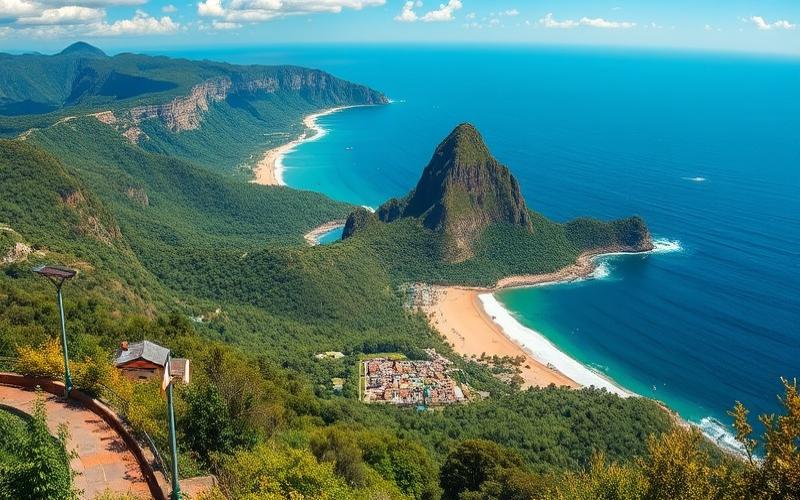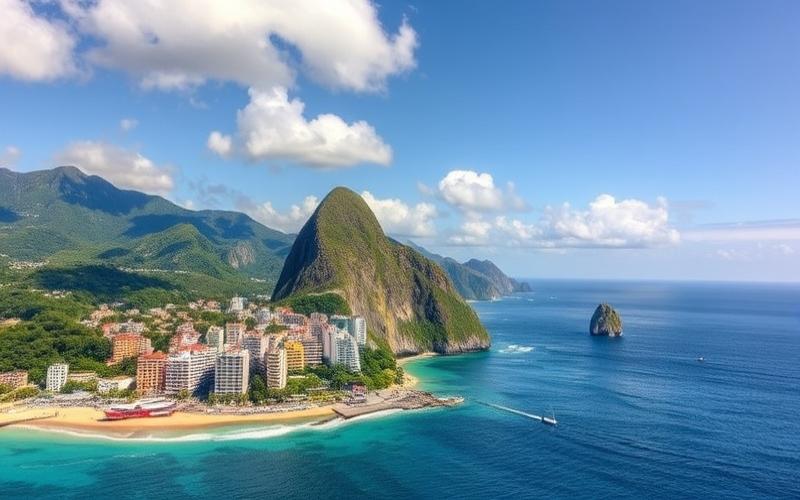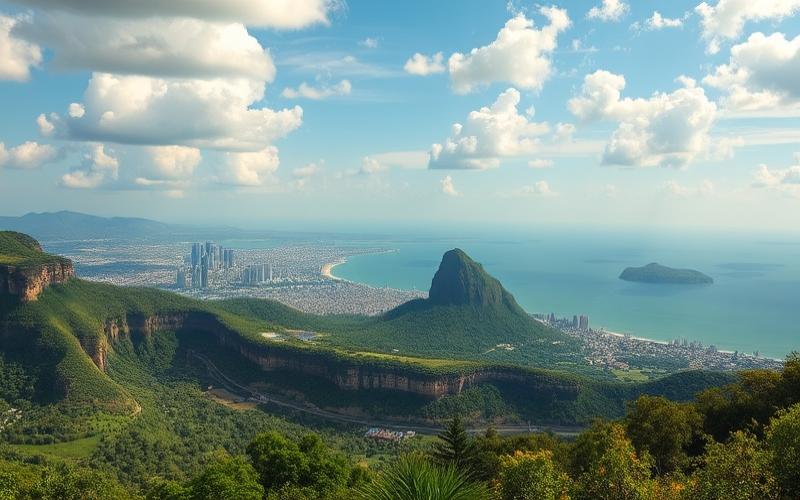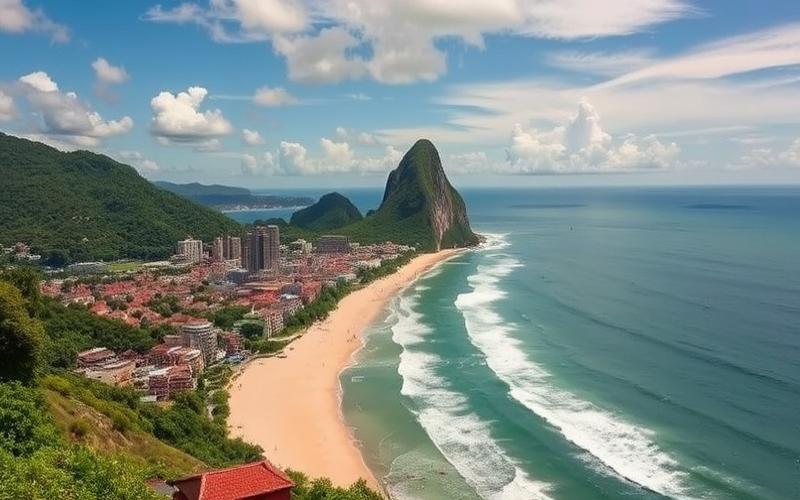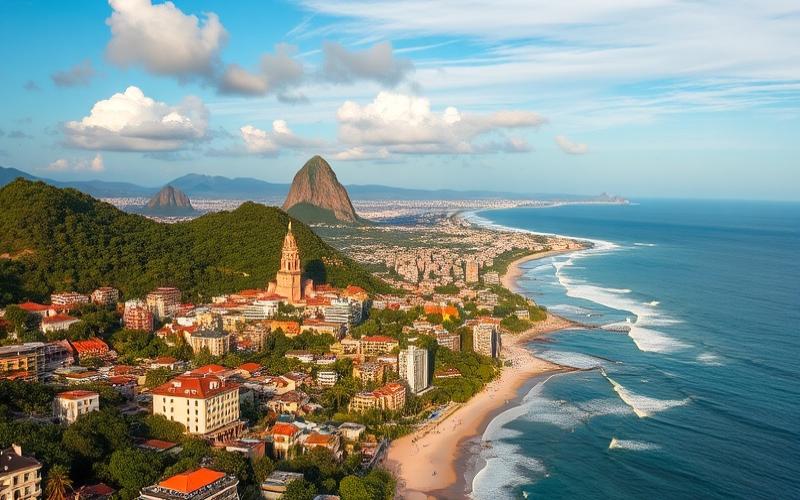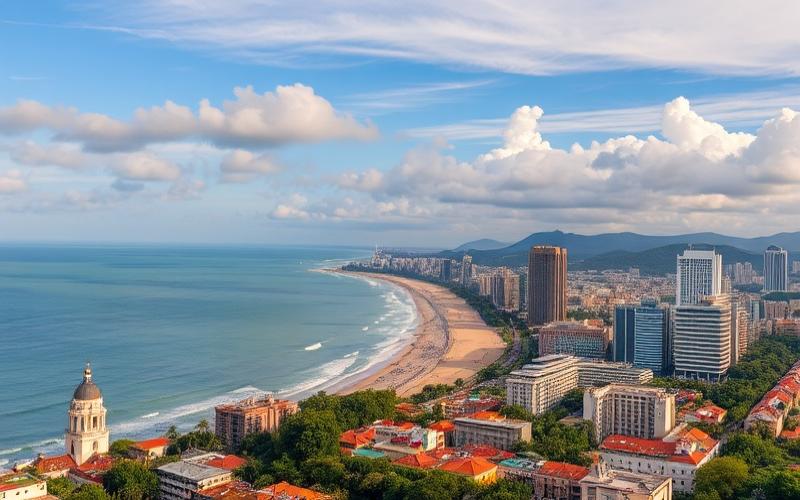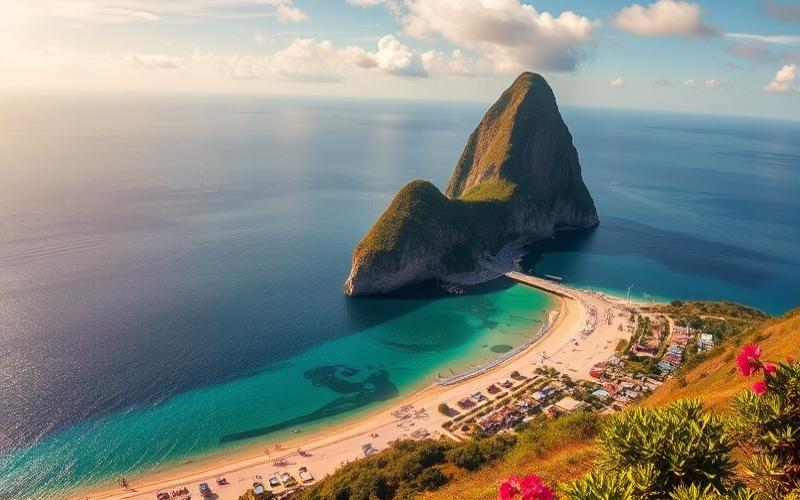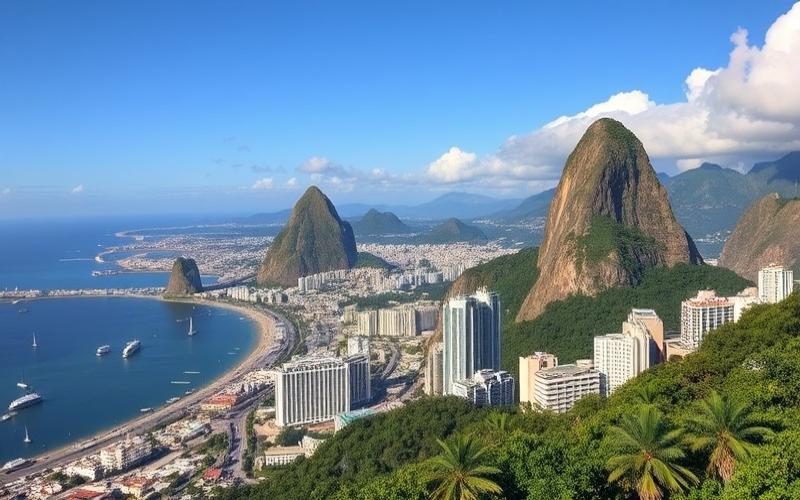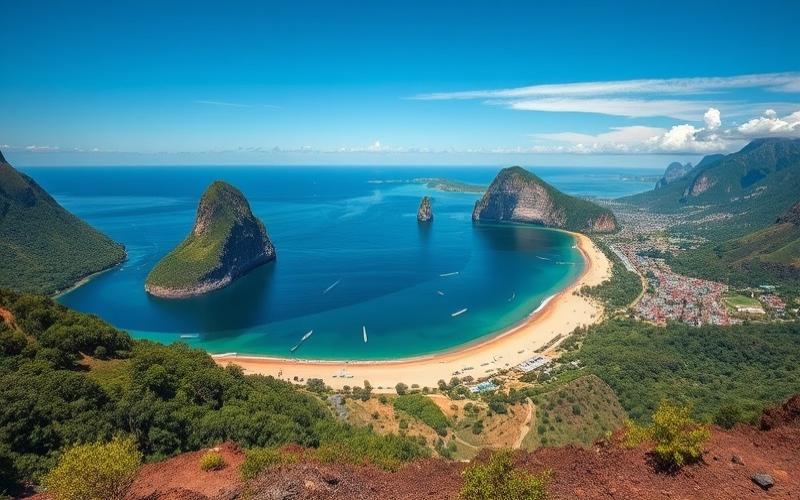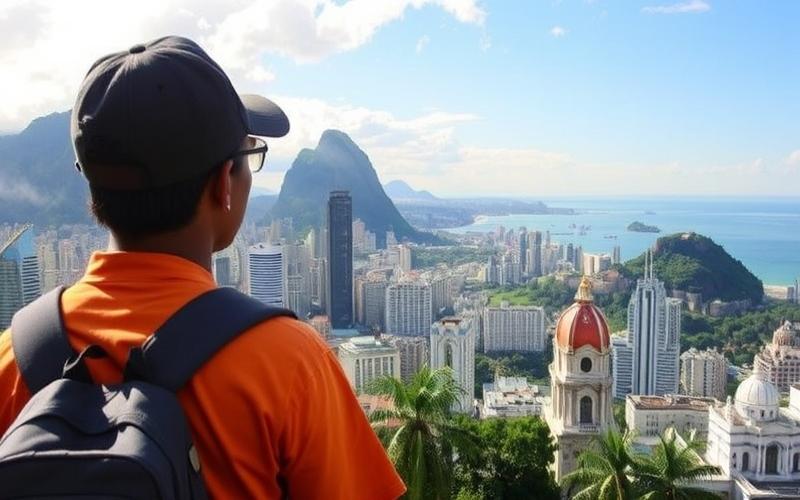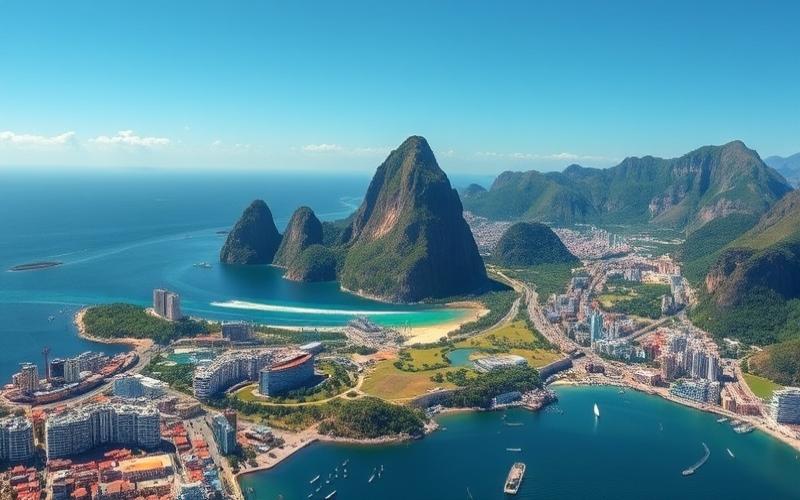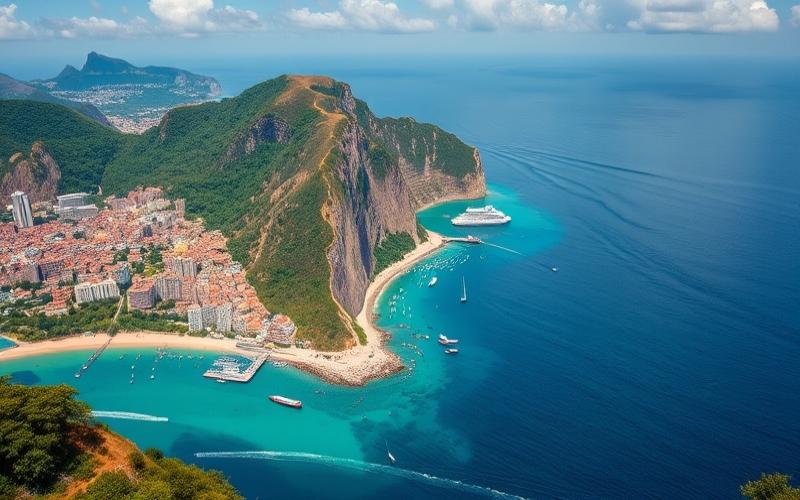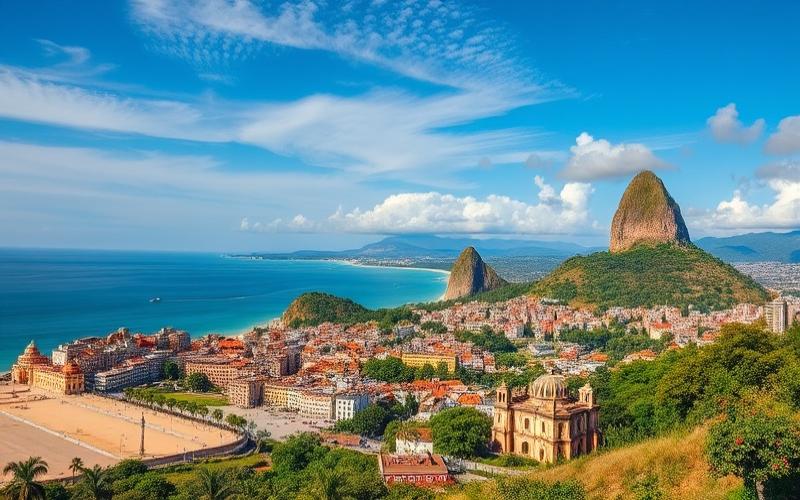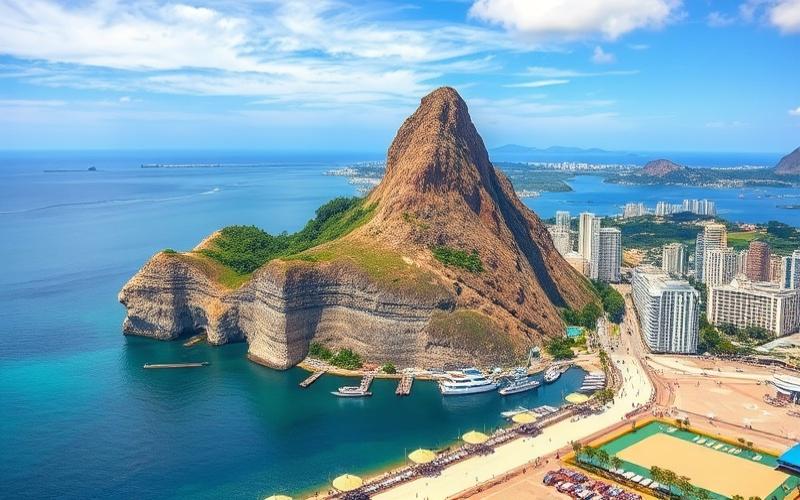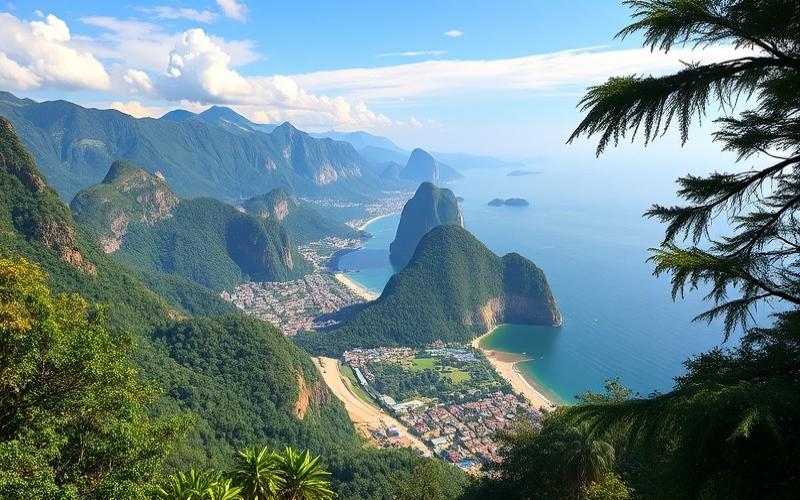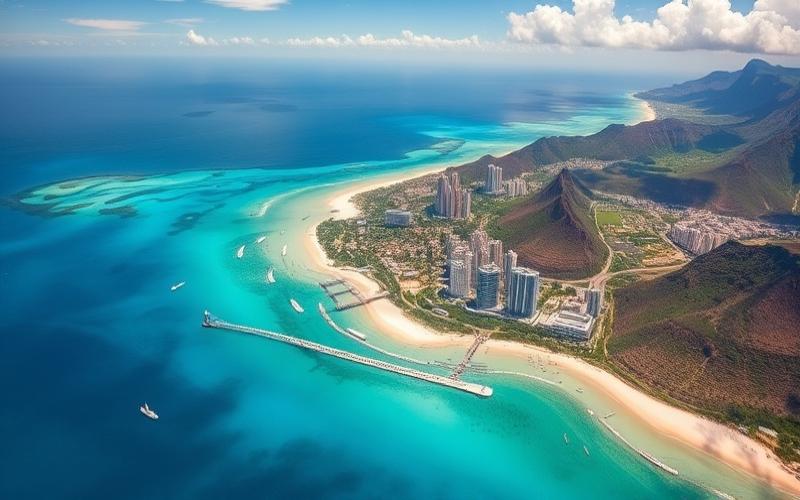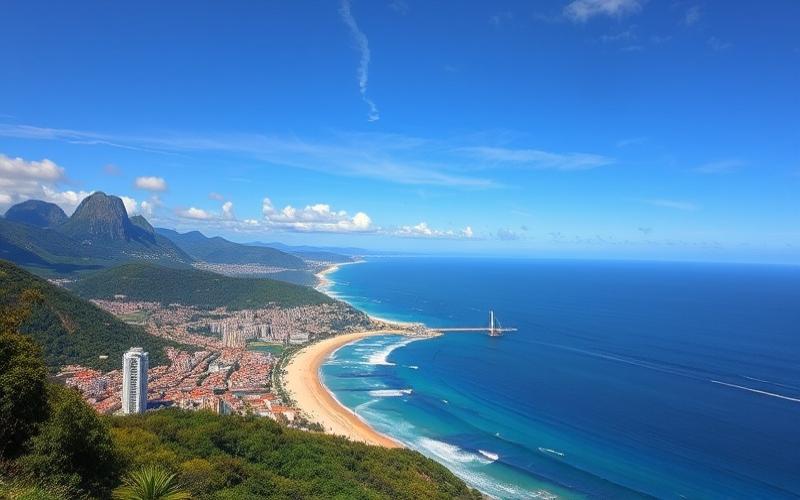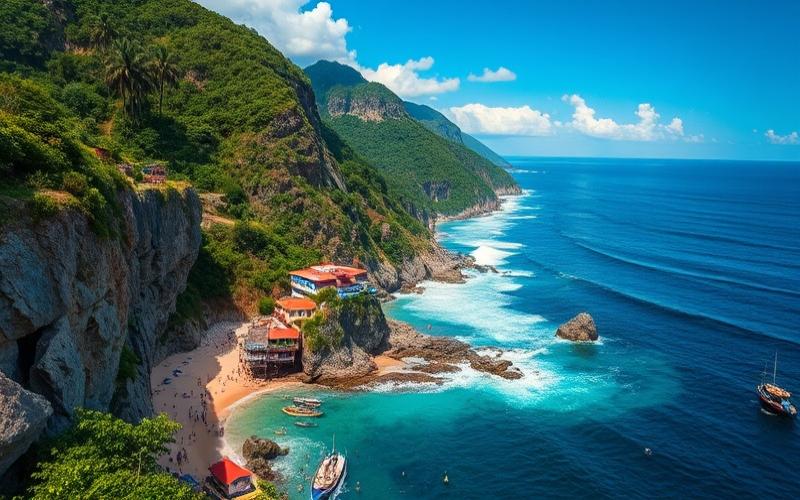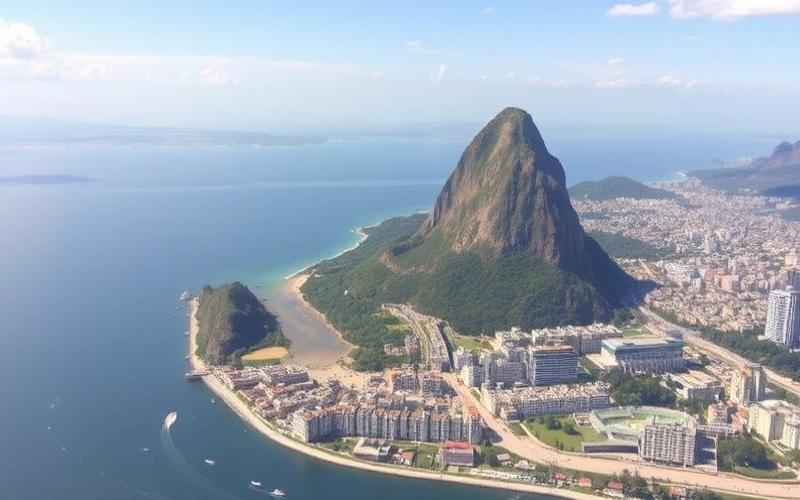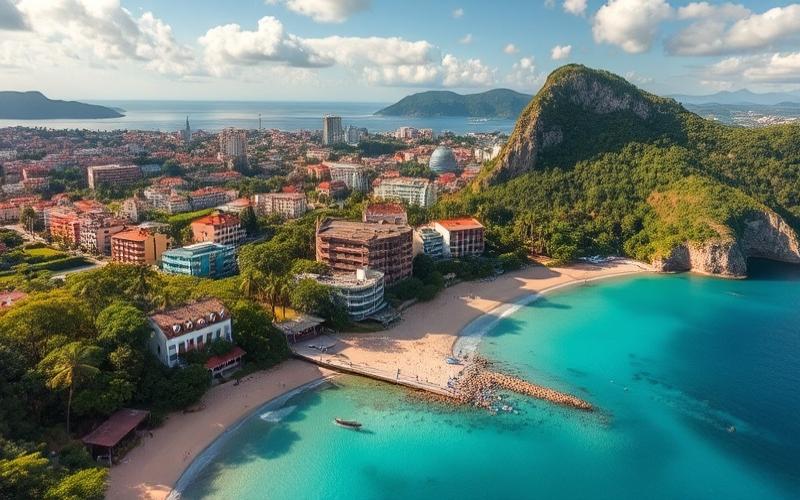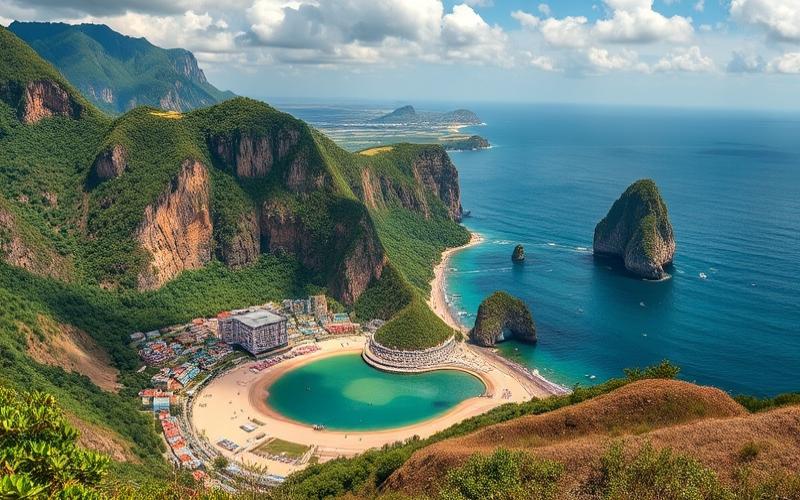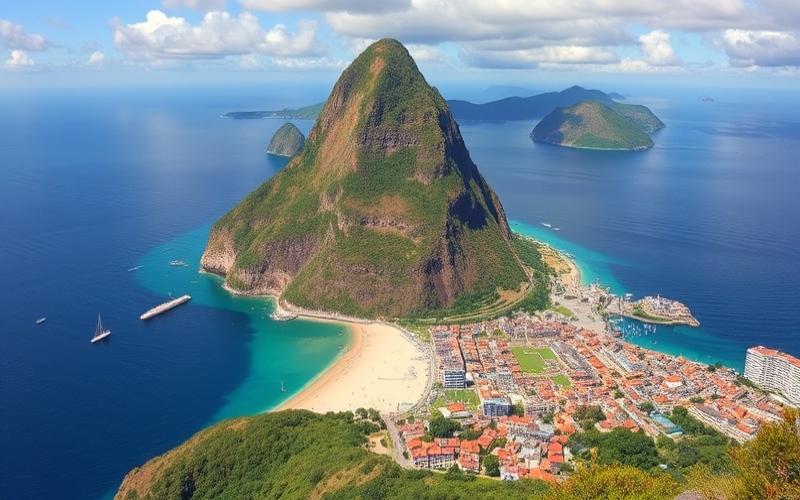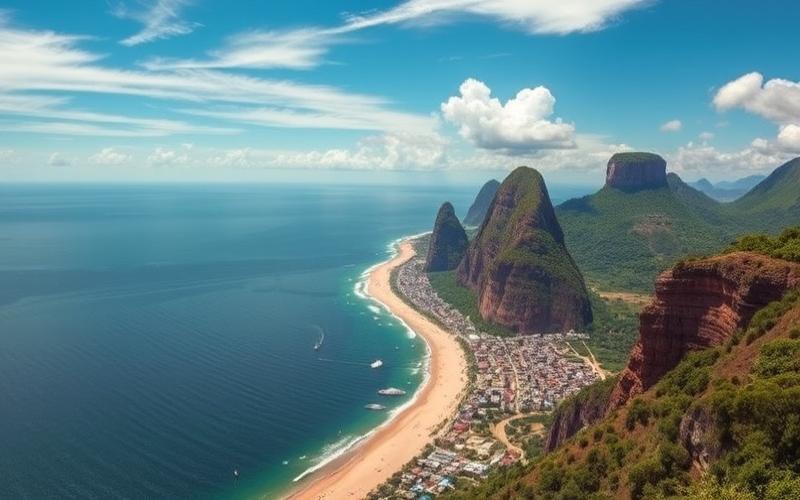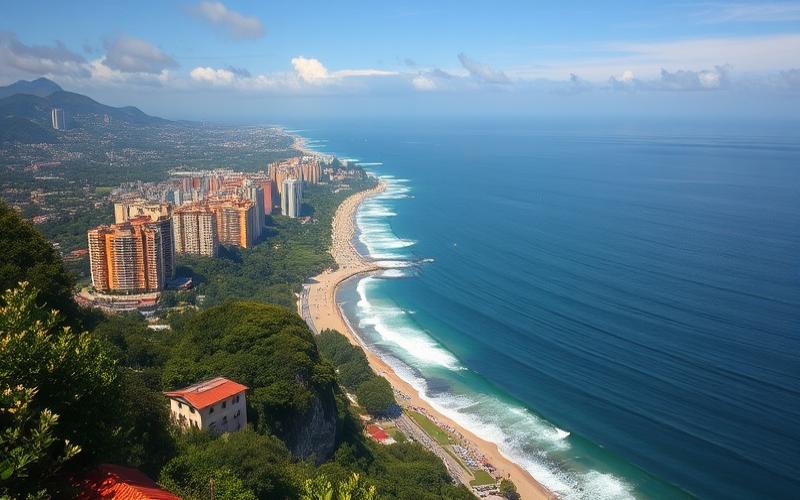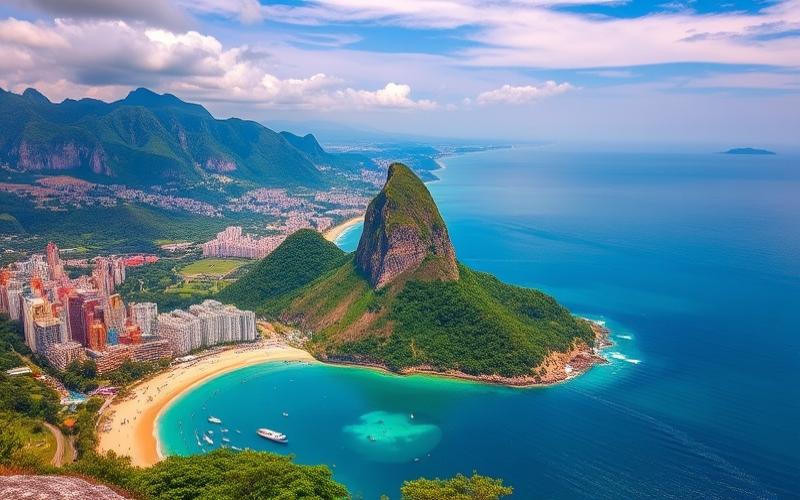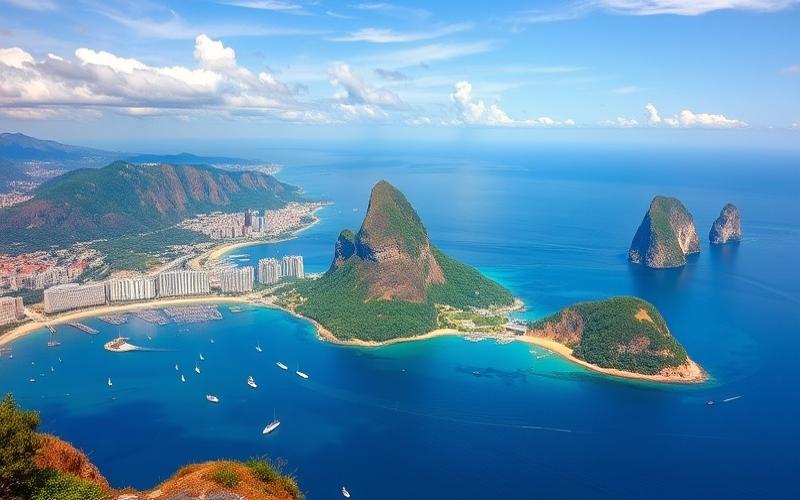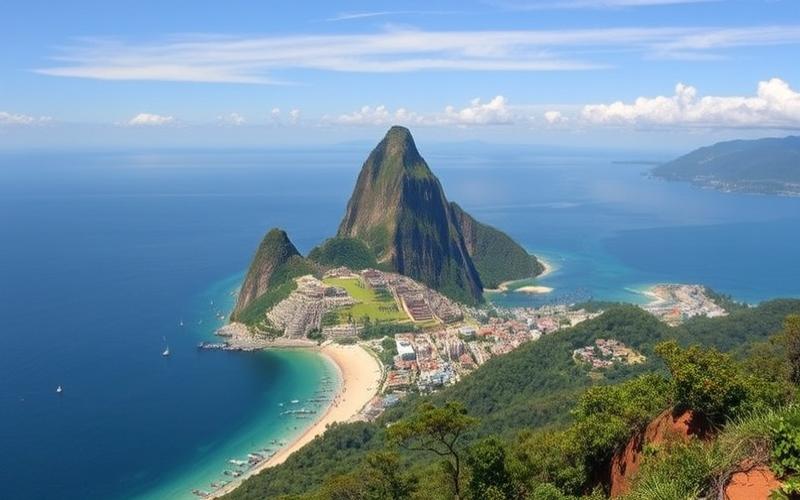
 Published on and written by Cyril Jarnias
Published on and written by Cyril Jarnias
Diving into the heart of cosmopolitan Brazil, our exploration of the best international schools invites you to discover a world where academic excellence meets cultural richness. By integrating varied programs ranging from the International Baccalaureate to American and British educational systems, these institutions don’t just meet educational needs; they also shape tomorrow’s leaders within a framework that fosters open-mindedness and diversity.
With continuous growth in dynamic cities like São Paulo, Rio de Janeiro, and Brasília, these schools are true talent incubators, ready to offer their students a world-class education in a stimulating and inclusive environment.
Must-Knows About International Schools in Brazil
The international educational landscape in Brazil stands out for its great cultural diversity, both among students and teaching staff. International schools, mainly located in major cities like São Paulo, Rio de Janeiro, and Brasília, welcome children from expatriate and local families, creating a truly multicultural environment that fosters open-mindedness and tolerance.
| City | Reputable International Schools |
|---|---|
| São Paulo | St Paul’s School, Escola Americana de São Paulo (EASP), Swiss School of São Paulo |
| Rio de Janeiro | The British School Rio de Janeiro, American School of Rio |
| Brasília | American School of Brasília |
Distinctive Features of Renowned Schools:
- Bilingual or multilingual programs (English-Portuguese, German-Portuguese for the Swiss School)
- Internationally recognized curricula: International Baccalaureate (IB), Cambridge International, or American/British programs
- International teaching staff, often native speakers of the language of instruction
- Modern sports and arts facilities
- Personalized cultural transition support
Example: The Swiss School of São Paulo offers instruction in Portuguese and German from an early age, along with several other foreign languages. Students there prepare for both the Brazilian diploma and the IB.
Major Criteria for Parents When Choosing an International School:
- Innovative teaching methods, student-centered (project-based learning, interdisciplinary approaches)
- Preparation for international exams enabling further studies anywhere in the world
- Rich offering of extracurricular activities: team/individual sports, visual arts/music/theater, scientific or humanitarian clubs
- Language support, especially to facilitate the integration of non-Portuguese speaking children
Typical List of Analyzed Criteria:
- Academic quality and international diploma success rates
- Overall reputation among expatriate/local families
- Campus security and modern infrastructure
- Class sizes conducive to individualized follow-up
Illustrative Testimonials:
“I was able to maintain my English level while perfectly learning Portuguese thanks to my international school in São Paulo. This allowed me to seamlessly enter a British university afterward.”
— Former French-Brazilian student
“What struck me upon our arrival in Brazil was the ease with which my children were integrated, thanks to the personalized support offered by their American school.”
— American expatriate parent
“Participating in so many extracurricular activities not only allowed me to learn differently but also to make friends from all over the world.”
— Current student in Brasilia
These anecdotes testify to the central role played by these institutions in welcoming and ensuring the academic and personal success of young people, whether from expatriate families or not. The strong network among parents also creates a supportive community around collective well-being.
Good to Know:
International schools in Brazil, such as Escola Americana and the British School, stand out for their bilingual programs and modern infrastructure, while parents focus on innovative teaching methods and varied extracurricular activities to ensure optimal preparation for international exams. A former student recounts how this experience helped them enter a prestigious university abroad, illustrating the significant impact of these institutions.
Focus on an Expatriate’s Budget in Brazil
Analysis of Daily Living Costs for an Expatriate in Brazil
| Expense Item | São Paulo (€/month) | Rio de Janeiro (€/month) | Brasilia (€/month) |
| Housing | 350 – 600 | 320 – 550 | 300 – 500 |
| Food | 125 – 180 | 120 – 170 | 110 – 150 |
| Transportation | ~40 | ~35 | ~30 |
| Health* | Variable | Variable | Variable |
| Leisure | ~50 | ~45 | ~40 |
*Health expenses can vary considerably depending on the use of private insurance, highly recommended for expatriates. Private consultations are more accessible than in Europe, but hospitalization can be costly.
Housing
- The rent for a furnished downtown apartment in São Paulo or Rio ranges between 1,200 and 2,500 BRL (210 to 440 €), and can drop below 800 BRL (140 €) in the suburbs or in some secondary cities.
- In Brasília, rents are generally a bit lower than in the other two metropolises.
- In upscale neighborhoods like Jardins or Leblon, plan for a significantly higher budget, potentially exceeding 3,000 BRL/month for a modern 2-bedroom apartment.
Food
- Budget approximately 125–180 €/month/person, depending on whether you prioritize local or imported products.
- Shopping at markets (“feiras”) allows you to buy fresh fruits/vegetables at a lower cost; prioritizing home cooking significantly reduces the food budget.
Transportation
A monthly public transportation pass costs between 30 and 50 €, varying by city.
Using taxis/ride-sharing quickly increases the budget; opting for buses/subways remains more economical.
Practical Tips:
- Prefer purchasing a rechargeable monthly card over single tickets.
- Urban carpooling is developing in all major cities.
Health
The public system is free but often saturated. Private international health insurance is highly recommended: budget approximately 100–200 €/person/month, varying by age and coverage chosen.
Impact of International School Tuition Fees
International schools often represent the major budget item for an expatriate family:
- Average annual fees: between 7,000 € and over 20,000 €/child/year, depending on the institution and city chosen.
- In São Paulo/Rio, a French or American school can cost up to 25% of the annual budget for a family with two children in international schools.
Comparison Between Major Brazilian Cities
| São Paulo | Rio de Janeiro | Brasilia | |
| Average cost downtown furnished 2-bedroom/month | 420 € | 400 € | 350 € |
| (Premium neighborhoods: Jardins/Leblon/Sudoeste etc.) | >650 € | >620 € | >550 € |
| Local restaurant/quick meal | 6–8 € | 5–7 € | |
| Monthly subway/bus pass | ≈45 € | ≈42 € | ≈38 € |
Concrete Examples & Lifestyles
- Modest single expatriate, suburban neighborhood:
- Unfurnished studio: approx. 150 €/month
- Meals mostly homemade
- Travel by bus only
- Estimated total budget: ≈650 €/month
- Expatriate family with children, secure central neighborhood + international school:
- Modern 3-bedroom apartment/gardens/gated community: 600–900 €/month
- Two children enrolled in a French international school: up to 15,000 €/year/child
- Family car + private insurance
- Estimated total budget excluding leisure/travel: >4,000 €/month
Practical Tips to Optimize Your Budget
- Choosing safe but less prestigious intermediate neighborhoods than Jardins/Ipanema/Sudoeste can save up to 30% on rent while maintaining comfort/security.
- Buying local products (tropical fruits, dry rice/beans) at the market significantly reduces the food bill compared to European/American import supermarkets.
- For daily commutes, prefer public transport/urban carpooling; reserving taxis/ride-sharing only occasionally prevents the transportation budget from exploding.
Tip: Buy your fruits/vegetables at open-air markets (“feira livre”) early in the morning; negotiate before closing for even more savings!
Attention: The actual cost will heavily depend on the chosen lifestyle—selecting your neighborhood and limiting Western habits can sometimes lower your budget below official estimates!
Good to Know:
In São Paulo and Rio de Janeiro, rents can be high, but opting for a suburban neighborhood and prioritizing public transportation helps reduce costs; international schools often represent a significant portion of the budget, with annual fees ranging from 20,000 to 50,000 BRL depending on the institution.
Disclaimer: The information provided on this website is for informational purposes only and does not constitute financial, legal, or professional advice. We encourage you to consult qualified experts before making any investment, real estate, or expatriation decisions. Although we strive to maintain up-to-date and accurate information, we do not guarantee the completeness, accuracy, or timeliness of the proposed content. As investment and expatriation involve risks, we disclaim any liability for potential losses or damages arising from the use of this site. Your use of this site confirms your acceptance of these terms and your understanding of the associated risks.

